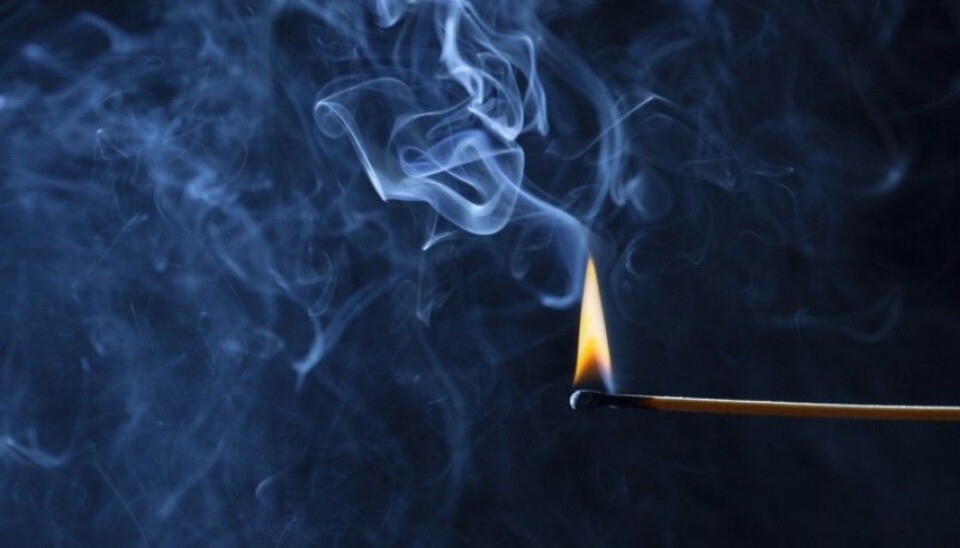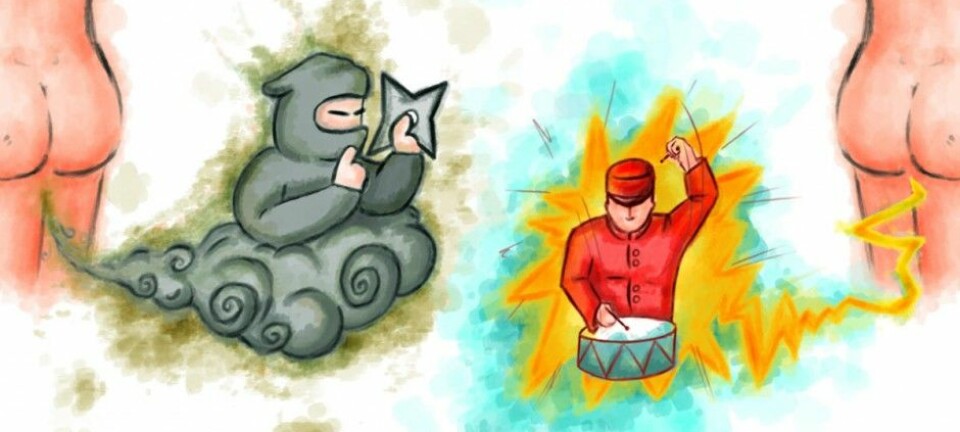
Burning a match - does it get rid of nasty bathroom odors?
Two chemists attempt to answer this age-old question.
An eager reader of the Norwegian companion to ScienceNordic, forskning.no, wondered if the common practice of lighting a match after using the toilet really works to reduce unpleasant smells.
The reader hypothesized that there might be one of three explanations as to why this might actually have an effect:
- The flame might be able to burn up some components of the unpleasant smell.
- The burnt smell from the match might be able to overwhelm the bad smell.
- Or, the match essentially acts like a placebo and has no effect.
This clearly called for us to put on our Sherlock Holmes deerstalkers to find an answer. Two chemists, Jo Døhl, head of the Department of Chemistry at the University of Oslo, and Leiv Sydnes from the University of Bergen, agreed to help us out. Unfortunately, they both replied with the same, perhaps a bit disappointing, answer.
What is it that actually smells?

In order to understand the answer to the question, however, we have to make a small trip into the world of chemistry. First of all, what exactly is it that makes our farts—more formally known as flatus—stink?
The majority of intestinal gas is due to the air we swallow. For instance, if you chew gum you’re swallowing lots of air the whole time you're chewing. But this isn't what causes farts to smell bad.
“The digestive process breaks down the food we eat into useful components and the waste products are excreted as stool. Some of this waste is in gaseous form,” Døhl wrote in an e-mail.
“Much of this gas is made up of carbon dioxide and methane, but it also includes hydrogen and sulphur compounds such as hydrogen sulphide,” he wrote. This last compound is what usually gives farts their signature scent.

Sydnes explains that large quantities of hydrogen sulphide can actually be fatal. And although a modest fart does not contain near the quantities it takes to be deadly, the smell is very recognizable, even in small doses. Moreover, it is also flammable.
“Hydrogen sulphide, H2S, will react with the oxygen in the air and the flame so as to form water and sulphur dioxide. Sulphur dioxide smells completely different and is much less unpleasant,” wrote Døhl.
This answer bodes well for option one: that the burning flame consumes the malodorous gas. Unfortunately, however, the answer is not quite that simple.
An explosion in your toilet
Think about it. If indeed your match were able to burn up all the H2S, it would have to burn it up very quickly—quickly enough to create an explosion.
But our chemists say that air must contain at least 4.3 per cent of the malodorous gas before an explosion will occur.
No matter how hefty your visit to the toilet might have been, you can never produce that much H2S. You’d be poisoned by H2S gas first before it could reach high enough levels to explode.
And a single tiny match would never come in contact with all the H2S in the air, since the gas is dispersed and at low concentrations.
Instead, if you were particularly intent on burning up all the H2S in the bathroom, you might need something more the size of a gas grill with a fan to run all the air in the room past the flame, Døhl said.
“Now we’re talking about a bathroom visit of epic proportions,” he observed.
Disguised by smoke
Both Døhl and Sydnes are quite confident that the answer to the question is option two: the smoke from the match disguises the bad smell.
“The smoke masks the smell just like the different perfumed products people leave around in their bathrooms,” Døhl said.
Being chemists, however, our experts had some high-tech solutions that could remove the bad smell.
“You could filter the air through activated charcoal,” Døhl said.
Activated carbon is a general term for material that is produced from charcoal. It has a large surface area and contains a great number of tiny pores, and can capture virtually all chemical compounds that are slightly soluble in water.
If you have an activated charcoal filter in your bathroom, the H2S will be absorbed by the charcoal. But then you have to make sure that all the air in the bathroom is passed through the filter, which poses its own set of problems, he said.
“I would say that it is much easier to install adequate ventilation and an efficient ventilation fan,” Døhl said.
-------------------------------------
Read the Norwegian version of this article at forskning.no



































